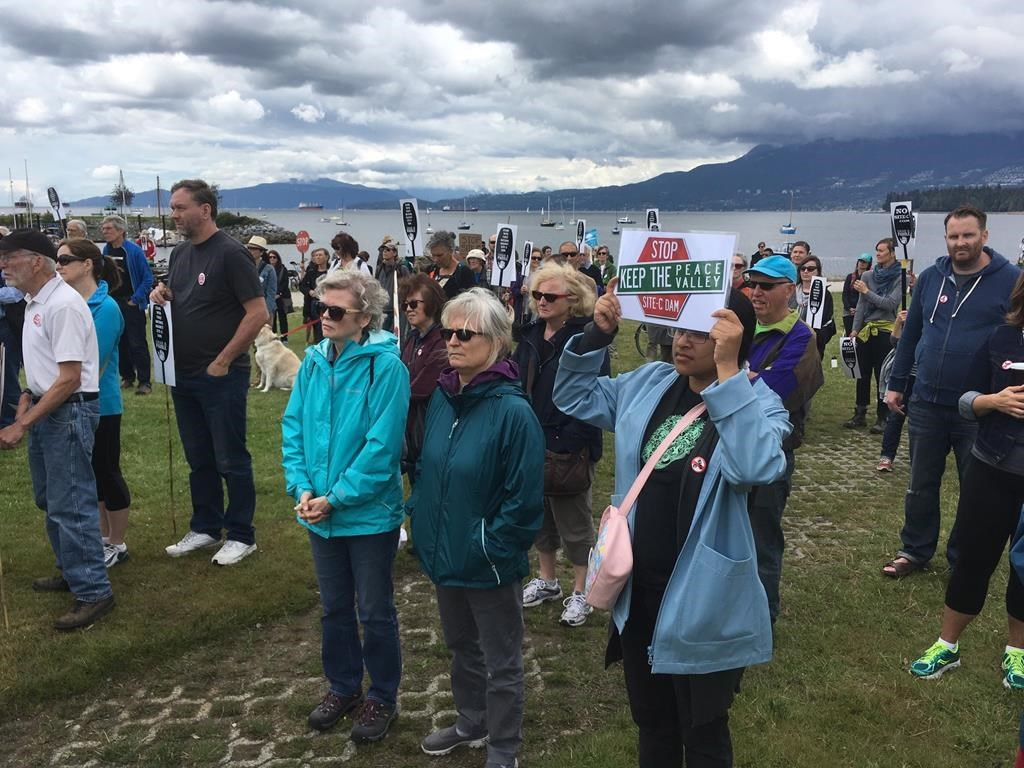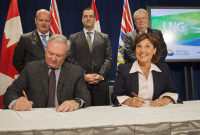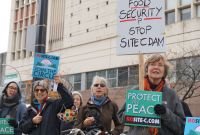Support strong Canadian climate journalism for 2025
British Columbia's New Democrat government has requested an independent review of the $8.8-billion Site C dam, threatening thousands of construction jobs on what was a signature megaproject for former premier Christy Clark.
The government has asked the B.C. Utilities Commission to determine the economic viability of the massive hydroelectric dam on the Peace River. The review will begin Aug. 9, with interim findings six weeks later and a final report by Nov. 1.
The NDP campaigned on having the project reviewed by the commission, a practice that was once standard in B.C., before the previous Liberal government's clean-energy laws allowed some projects to bypass the regulatory agency.
"The previous government refused to allow our independent energy watchdog to examine the project to determine if it was in the public interest," Energy Minister Michelle Mungall said Wednesday.
"That was wrong. We're sending this project to the BCUC to ensure we make the right decision for B.C. families."
Mungall said the commission has been asked to confirm whether BC Hydro is on target to complete Site C on budget and by 2024.
It has also been asked to provide advice on three possible outcomes: proceeding with the project, suspending construction and keeping the option open to resume until 2024, or terminating the project and proceeding with other energy options.
Mungall said the utilities commission will be required to consult with interested parties, including First Nations, and it may consider expert advice and public input as well.
The dam is two years into construction and employs more than 2,000 people in northeastern B.C. It would be the third dam on the Peace River, flooding an 83-kilometre stretch of valley, and has faced fierce opposition from local First Nations, landowners and farmers.
Former BC Hydro CEO Jessica McDonald warned in June that delaying the evictions of two homes would result in a one-year delay of a road and bridge construction project at a cost $630 million.
However, Mungall said that rerouting a highway to save one of the homes was an option.
BC Hydro confirmed Wednesday that while some highway realignment work will be delayed, mitigation options have been identified so that river diversion can remain on track and the overall project schedule and budget can be maintained, should the project proceed.
The Green party, led by Andrew Weaver, has agreed to support the NDP in a minority government. The Liberals, now in Opposition, questioned the New Democrats' motivations for requesting a review.
"Is this fake review being done in the best interest of the British Columbia taxpayer or is this simply another way of appeasing Andrew Weaver to prop up their partisan alliance?" asked Liberal member of the legislature Mike Bernier in a statement.
"It is clear this review is designed to meet the NDP's political needs and not the province's electricity needs."
Weaver said in a statement that the Greens were consulted early on the terms of reference for the review, but the final draft was the responsibility of cabinet.
Construction will continue while the review is underway, but that provides little solace to the 2,400 people working on the project, said Chris Gardner, president of the Independent Contractors and Business Association.
"They've got to be thinking that six months from now they may not have a job," he said.
"Site C was reviewed for three years by an independent panel. BC Hydro spent a decade planning for the project. The provincial and federal levels of government both approved the project. It's now 20 per cent complete."
However, environmental group Sierra Club BC applauded the government's decision, saying it was good news for ratepayers.
"The reality is that we don't need Site C power, it's hideously expensive and inevitable cost overruns would be paid for by B.C. ratepayers, and more environmentally and economically viable alternatives are available today."





Comments